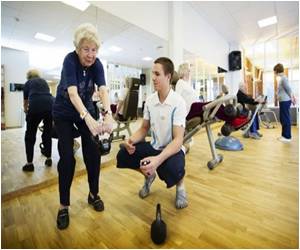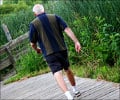Exercising is beneficial for all seniors, even for those who are weak.

This discovery is excellent news, as increased life expectancy has also increased the number of frail seniors in our communities.
In geriatrics, frailness is characterized by decreased functional reserves in an individual, which increases vulnerability to stressors and the risk of adverse health effects.
Frailty is associated with a higher risk of falls, hospitalizations, cognitive decline and psychological distress.
"For the first time, frail senior citizens have participated in a study on exercise thanks to the collaboration of medical doctors at IUGM, who provided close medical supervision. My team was able to demonstrate that sedentary and frail senior citizens can benefit from major improvements not only in terms of physical function but also brain function, such as memory, and quality of life," stated Dr. Bherer.
In this study, 43 of the 83 participants between the ages of 61 and 89 years, some of whom were considered frail, took part in group exercises (3 times a week for 12 weeks), while the control group of 40 participants did not follow the exercise program.
Advertisement
Most importantly, benefits were equivalent among frail and non-frail participants suggesting that there isn't never too late to engage in exercise intervention programs.
Advertisement
These findings were published online on the Web site of the Journals of Gerontology.
Source-ANI















